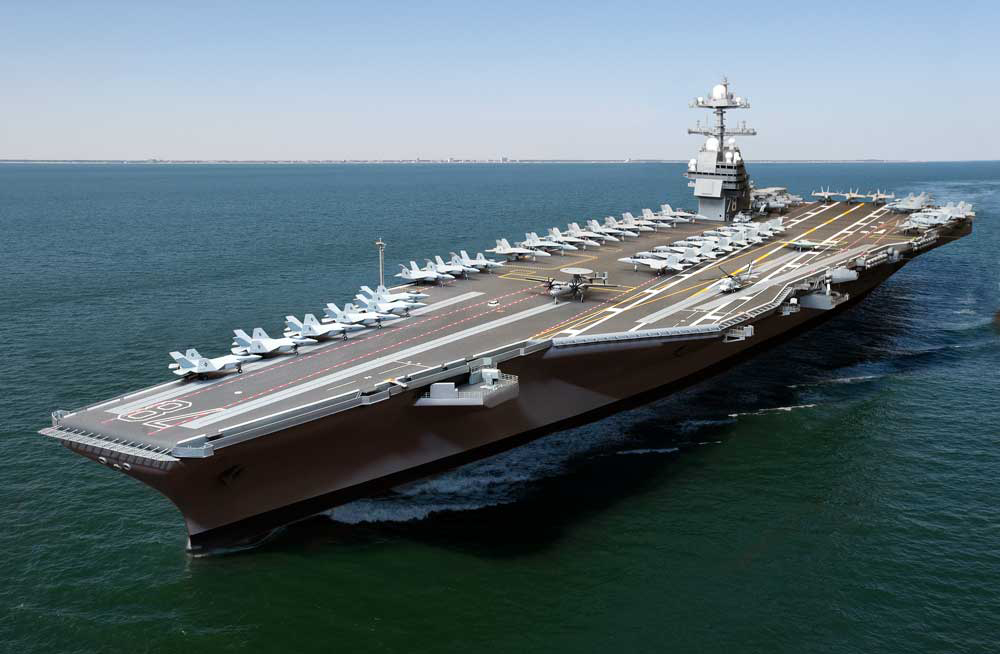
The Gerald. R. Ford, the U.S. Navy’s new state of the art nuclear aircraft carrier suffered what’s being called a “manufacturing defect” during its shakedown period. The defect was part of the carrier’s propulsion system, specifically the “main thrust bearing.” This appears to be the second time such a defect has affected the ship during its time at sea. Bloomberg is reporting that both the U.S. Navy and Huntington Ingalls, the company in charge of building the carrier, declined questions about who made the failed bearings.
The Naval Sea Systems Command said the Ford experienced “an out of specification condition” with a propulsion system component. Huntington Ingalls determined it was due to a “manufacturing defect,” the command said, and “not improper operation” by sailors. The defect “affects the same component” located in other parts of the propulsion system, the Navy added.
Navy officials didn’t disclose the problem during budget hearings before Congress in recent weeks, and House and Senate lawmakers didn’t ask about it.
Shelby Oakley, a director with the U.S. Government Accountability Office who monitors Navy shipbuilding, said the latest part failure was “unfortunate, but this and other ship quality issues are not surprising. The Navy has had issues with the extent of its inspections prior to delivery from the shipbuilder.”
The Navy is seeking approval in the fiscal 2019 defense request to accelerate purchase of the fourth Ford-class carrier by bundling it in a contract with the third. It expects to request congressional support over the next month or two for what’s now an estimated $58 billion program. […]
[…] William Couch, a spokesman for the Sea Systems Command and Huntington Ingalls spokesman Beci Brenton declined to say who made the bearing that failed.
But General Electric Co. is responsible for the propulsion system part, and the Navy program office said in an assessment that an inspection of the carrier’s four main thrust bearings after the January failure revealed “machining errors” by GE workers at a Lynn, Massachusetts, facility “during the original manufacturing” as “the actual root cause.”
Deborah Case, a GE spokeswoman, said in an email that “GE did produce the gears for the CVN-78. However, we are no longer producing gears for CVN-78” and “we cannot comment on the investigation.”
The CVN-78 is the official name of the Gerald R. Ford.
Couch said defects “will be fully corrected” during the ship’s upcoming “post-shakedown availability” phase. All vessels go through the phase intended for correcting deficiencies discovered during the post-delivery sea trial conducted by sailors.
The post-shakedown availability was supposed to start last month and end in December. Its start is now delayed until this summer in part because of the failure, with completion about a year later, according to Couch.
Read more here.




